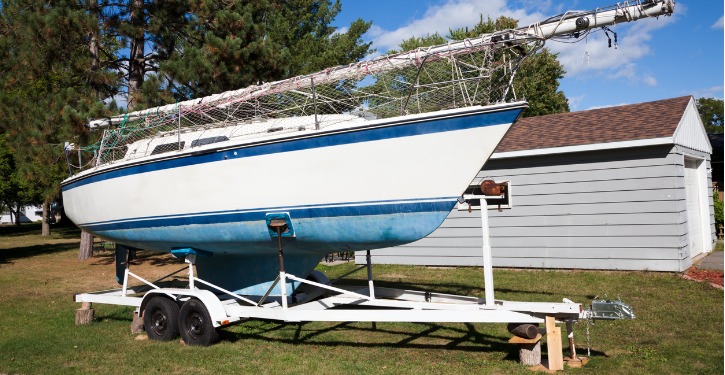Whether it’s because of changing weather or changing circumstances, if you’re moving a vehicle into storage, you may wonder if it still needs insurance. After all, a motorcycle no longer on the open road certainly isn’t as open to the same risk when it’s safely stored, right? If you bought a second vehicle without trading in the first, what do you do if you’re not driving the first as much? And what about a boat that’s been stored ashore? How might these situations affect insurance coverage?
Situations can vary, so if your circumstances have changed, you should talk to Westwood. Your independent agent can help you determine your available options. Then you can decide what makes sense for you and your circumstances. Best of all, if you decide you still need insurance for your vehicle in storage, Westwood can help you find a solution that works for you and your budget.
Am I legally required to insure a vehicle in storage?
The short answer is no; you don’t need insurance coverage for a truly in storage vehicle. However, this is only from a legal standpoint. If you have a loan or a lease on a vehicle, the lender or leasing company will probably require you to maintain insurance coverage, whether it’s in storage or not.
A vehicle can’t be driven at all to qualify as exempt from carrying insurance. It will still have to be insured if it’s driven in any capacity. Even if you have an RV that you’ll only drive a few blocks to change its storage location, it must still carry coverage. If you have a vehicle only used in a limited capacity, you can talk to Westwood about policy options that will provide you only the coverage you need, so you never pay more than you have to. Even if you drive your car regularly, but for limited miles, it’s worth discussing your options, as low-mileage policies could save you money.
Should I cancel my policy for a seasonal vehicle while it’s in storage?
Assuming you’re not required to carry insurance because of a lender or leasing company requirement, you don’t legally have to carry insurance while the vehicle is in storage. However, there are reasons to consider not dropping coverage altogether.
Also, because insurance companies recognize that some vehicles are not driven year-round, there are coverage options that take these periods of storage into account. For example, motorcycle insurance policies are available, known as “winter layup,” which automatically suspends coverage for nonriding months. Other options can include tailoring liability limits or moving-related coverages during the periods of time when your vehicle won’t be used.
Why should I keep any coverage on my vehicle while it’s in storage?
While you’re not legally required to insure a stored vehicle that you own outright, there are a few situations where insurance can help protect your investment and help prevent headaches if something happens to your vehicle while it’s not in use.
If a tree falls on the shed where your motorcycle is stored, or a fire breaks out and spreads to your dry-docked boat, you’ll probably need a policy with comprehensive coverage to pay any repair or replacement costs. If a car in storage is stolen or vandalized, you probably won’t be able to recover the loss unless the vehicle is still insured. Additionally, if your vehicle is seasonal, keeping an active insurance policy gives you the flexibility to change your plans if the weather is unseasonable.
Every situation is different
There are many reasons to put a vehicle in storage, and Westwood can help you navigate the nuance of what kind of coverage you need. Contact us today. If your vehicle isn’t currently running or is just waiting for the right weather, your independent agent can help you find the right policy to be sure you’re not paying more than you should but still have the coverage you need.





